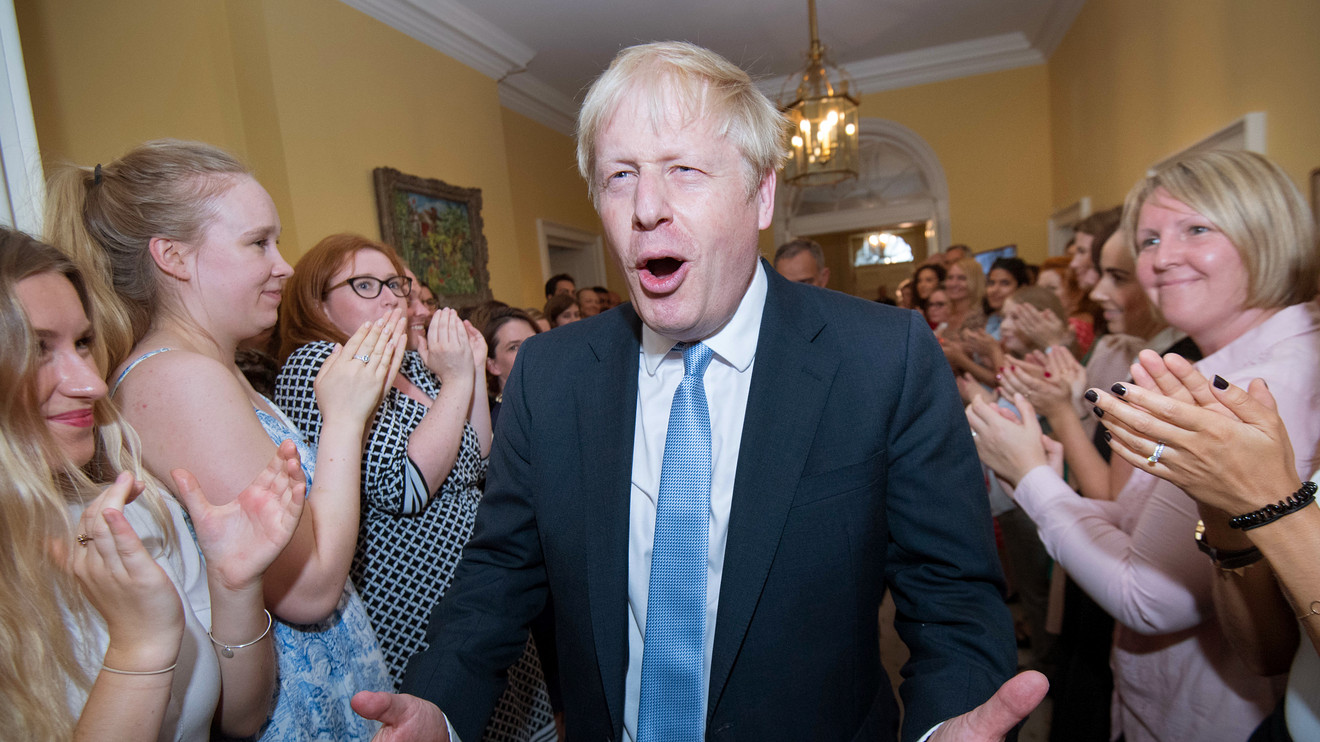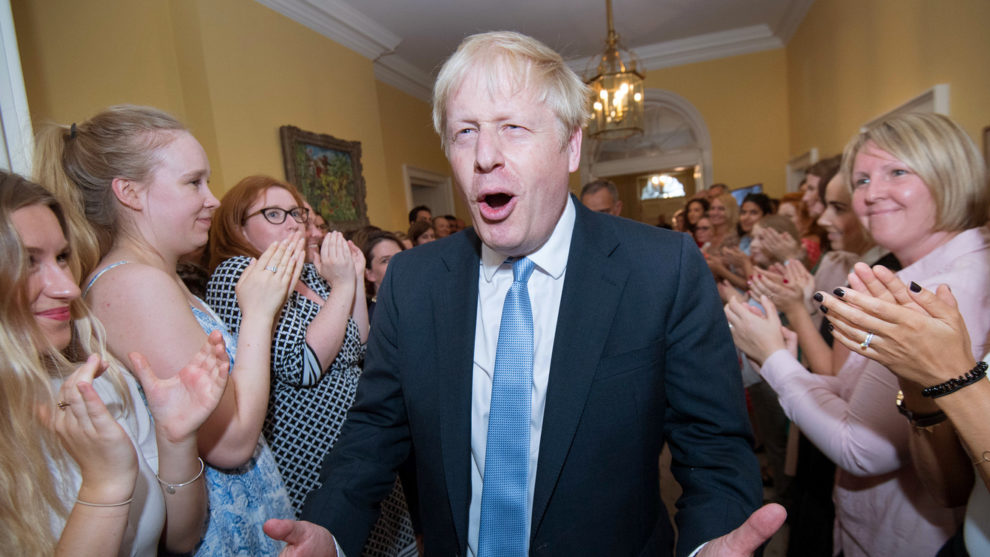
The ruling by the U.K. Supreme Court that Prime Minister Boris Johnson’s suspension of Parliament in early September was unlawful is a British constitutional earthquake that throws Brexit into further upheaval, and could even lead to its reversal.
Yet the immediate market reaction to the judgment was muted. The pound GBPUSD, -0.0160% — which in recent months has reliably moved in diametric opposition to Johnson’s political fortunes — made gains, rising 0.48%. The FTSE 100 UKX, -0.47% declined 0.5%.
Markets’ subdued response reflects a lack of certainty, investors said. The Supreme Court’s ruling provides a dramatic political rebuke for Johnson, and significant cheer for his opponents, but its ultimate effect on how, when and whether Brexit takes place is at best unclear.
Here, we take a look at some possible scenarios for what happens next:
Parliament returns
Most immediately, the U.K. Parliament will now reconvene. It is now due to return on Wednesday, the BBC reported, just a day after the Supreme Court judgment was handed down.
This creates political headaches for Johnson — ones he had sought to avoid via the suspension—because his government has lost its majority in Parliament.
Following his ouster of 21 pro-EU rebels from the Conservative Party in early September, Johnson’s government has a majority of minus-43. Johnson has lost every parliamentary vote he has staged since he became prime minister on July 24.
The Conservative rebels are now likely to team up with opposition parties to cause maximum pain and embarrassment for the government over its handling of Brexit — which is still due to take place by Oct. 31.
An indication came in the final hours before the legislature was suspended, or prorogued, on Sept. 10. Leading Conservative rebel Dominic Grieve successfully passed a measure calling for the publication of the government’s internal contingency-planning documents for a disorderly break with the European Union, revealing the extent of the disruption to trade and the economy.
The nightmare for Johnson could be that Parliament’s fractious gaggle of opposition groups — ranging from Labour, to the rebel Conservatives, to a host of smaller parties and independent MPs — now put together a stable working relationship to inflict further defeats.
Could Johnson just suspend Parliament again?
Some have speculated he will try to do exactly this, but, while the Supreme Court ruling doesn’t make that impossible, it does make it difficult.
The U.K.’s Parliament is usually suspended for a period of a few days each year for administrative purposes. It is this traditional procedure Johnson stood accused of abusing, by using it to shut down the legislature for five weeks ahead of the Brexit deadline.
So the judges weren’t able to declare that governments can’t ever prorogue Parliament. That leaves a legal door open for Johnson to try again, by the book this time.
The problem is that having tried and failed once, he can be sure of intense scrutiny. According to Charles Brastred, a partner at the law firm Hogan Lovells, Johnson “would have to give cogent and lawful reasons for doing so, and it is unlikely that it could be of anything like the length previously intended.”
Parliament cannot prevent its own prorogation, but it could, for example, pass a motion calling on the queen not to allow it.
The first unwritten article of Britain’s famously unwritten constitution is “don’t involve the queen in political controversy.” Asking the monarch for a second nonroutine suspension — in the face of the Supreme Court ruling — would fail that test, to put it mildly. Her majesty’s advisers might privately express a strong wish that such a request not be made at all.
Will Parliament bring down Johnson’s government?
In the wake of the Supreme Court decision, Jeremy Corbyn, the leader of the opposition Labour Party, called on Johnson to “consider his position.” But as several commentators pointed out, if Corbyn aims to oust Johnson, he now has a simple way of doing it: calling a vote of no confidence.
If Johnson lost that, his government would fall. But, despite its lack of a majority, it is not certain that he would lose. It is an open question what the Conservative rebels sacked by Johnson would do, in particular.
Corbyn has said he only wants to call a vote if he can be reasonably confident of winning it. And even if he decided to go all-out for a U.K. general election, he has to convince all the other opposition parties and former Conservatives.
The problem with that is the looming Brexit deadline. If Parliament — and the judges — couldn’t stomach the idea of suspending the legislature during Brexit, what are the chances they will agree to dissolve it for an election during Brexit?
Corbyn has said that now that Parliament is returning, he will hold talks with his fellow opposition leaders on the way forward. It is unlikely they will all agree to bring Johnson down, unless they can pull off something unlikely and almost unprecedented — of which more below.
So where does all this leave Brexit?
The short answer is that it leaves much where we were before — except with Parliament sitting, and with more opportunity to make mischief and inflict defeats upon the government.
But Johnson is likely to remain in place as prime minister up until Oct. 31, in charge of negotiating with the EU and attempting to deliver an exit package that a majority of Parliament will vote for, by that date.
Signs of progress on that front haven’t been encouraging, with EU leaders insisting they don’t like Johnson’s ideas so far. Preparations for a disruptive U.K.-EU breach continue apace.
One of Parliament’s last acts before the suspension early this month was to pass a new law mandating Johnson to ask the EU for another extension of the Brexit deadline, if he doesn’t secure a deal. Johnson is adamant he won’t, but he also says he will respect the law.
Johnson may have some clever stratagem by which those two things can be true, but the opposition seems confident he will either have to break his promise or resign.
And if Johnson does go — either by resignation or ouster — there is another maneuver the opposition could try.
Under U.K. law there is a loophole that could give the country a new, non-Johnson government in a matter of days, without an election. If Parliament passes a vote of no-confidence in a prime minister, there is a 14-day grace period during which another prime minister could emerge. His or her only qualification for the role would be that she or he could “command a majority in Parliament.”
In other words, if every single opposition group, plus the Conservative rebels, lined up behind Corbyn — or a compromise candidate — the U.K. could see a temporary National Unity Government devoted to halting Johnson and resolving the Brexit impasse one way or another. For example, it could decide to hold a second public vote on whether Brexit is a good idea at all.
And Labour is increasingly coming around to the idea of such a vote, under sustained pressure from the smaller Liberal Democrat Party, which has vowed to reverse Brexit altogether.
At Labour’s annual conference gathering this week, Labour’s shadow Brexit minister, Kier Starmer, said he believes there is “a growing consensus” in Parliament for a second referendum.
Thanks to the judges, there are now several extra weeks for that consensus to continue growing. With five weeks to go, how, when and even if Brexit happens seems as uncertain as ever.












